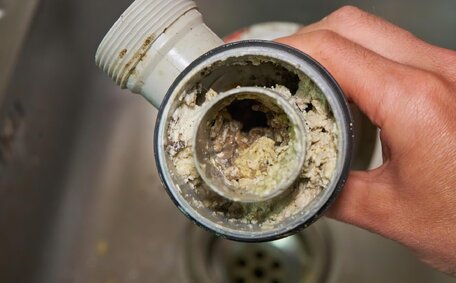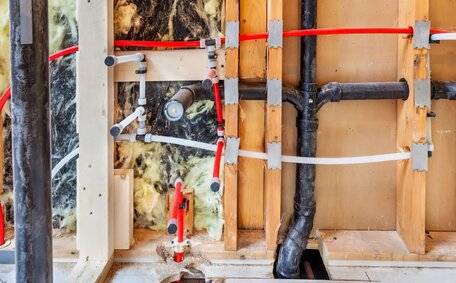Understanding Gas Safety Certificates: Their Importance and Necessity
A gas safety certificate, sometimes referred to as a CP12 or a gas safety record, serves as formal validation that gas systems and fixtures adhere to mandatory compliance and safety benchmarks. A Gas Safe registered engineer must issue the certificate after a comprehensive inspection of all gas-related systems, including appliances, flues, and pipework within properties on the connected gas network.
Legally mandated, gas safety certificates are essential for maintaining health and safety in environments where gas is used. Defective or neglected gas systems and appliances increase the risk of carbon monoxide leakage, fires, or explosions, which can cause poisoning and, in severe cases, fatalities. A valid gas safety certificate confirms that your gas appliances are safe to operate.
Obtaining a gas safety certificate is a crucial step, as it certifies the secure functioning of gas systems within a rental property, thus safeguarding residents. Landlords must supply tenants with the updated gas safety documentation every 12 months, fulfilling their legal obligations. Businesses must secure gas safety certificates to prove their gas systems’ compliance with safety norms, which is typically verified by an annual safety review.
Homeowners, landlords, and businesses must understand the severe consequences, such as fines or legal action, that can result from not having a proper gas safety check, which may lead to gas supply disconnection. Gas safety certificates require an annual renewal.
Who Requires a Gas Safety Certificate?
Several categories of individuals and organisations in Australia are legally obliged to maintain a current gas safety certificate to ensure their property is secure:
- Landlords must secure gas safety certificates at every tenancy’s commencement to ensure adherence to gas safety guidelines. Subsequently, these certificates must be renewed annually through a certified inspection to remain compliant with gas safety laws.
- Property managers acting on behalf of landlords have the same obligations to arrange annual gas safety inspections, ensuring every aspect of property gas safety compliance is met.
- Commercial properties such as cafes, restaurants, and offices using gas also require a current gas safety certificate, following a thorough gas safety inspection by a certified gas safety engineer.
- Although not required by law, homeowners are encouraged to perform voluntary gas safety checks every 1-2 years to ensure their home’s safety and detect potential issues.
Keeping gas safety records up to date provides tenants, buyers, and insurers with solid evidence of compliance with legislated gas safety standards.
Acquire a Gas Safety Certificate: A Step-by-Step Guide
Here’s what you should know about gas safety procedures and the detailed process for obtaining a gas safety certificate in Australia:
- Find licensed gas fitters in your area who are registered to provide a gas safe certificate via the Gas Safe Register. Utilising the register’s website will help ascertain if your engineer servicing the property can legally issue gas safety certificates or any other necessary documentation.
- Arrange a visit from a dedicated gas fitting specialist to conduct a complete inspection of your property’s gas appliances and infrastructure.
- The certified expert examines every component of the gas system, encompassing pipework, appliances, supply, and flues. They utilise specialist equipment to detect any leaks or out gas issues with ventilation or carbon monoxide build-up.
- Faulty appliances, such as those needing a boiler service, must be repaired or replaced if found to be a risk during the gas safety check. The gas fitter may disconnect unsafe installations until they carry out repairs to meet safety standards.
- Upon completing all checks and necessary repairs, the gas fitter will issue an official Gas Safety Certificate for the property.
- The issuing engineer ensures the Gas Safety Certificate is valid for 12 months. You are required to provide tenants or buyers with a copy of the certificate, if requested, as evidence of compliance with gas safety laws.
Varieties of Gas Safety Certificates
There are several common types of gas certificates in Australia, each catering to specific type gas installations and property types:
Domestic Gas Safety Certificates
A domestic gas safety certificate confirms that gas appliances and installations in residential settings meet regulatory standards for safe use. A licenced gas fitter will inspect appliances like boilers, hobs and room heaters, issuing a certificate compliant for homes.
Commercial Gas Safety Certificates
Commercial gas safety certificates ensure business-grade gas equipment and systems are installed safely and comply with regulations. The thoroughness of the checks will depend on the size of appliances present.
New Build Gas Safety Certificates
New gas installations in newly constructed homes require special new build gas safety certificates before the appliances can be legally commissioned and used. These certificates validate that new gas installations comply with building codes and safety standards.
Legal obligations for gas safety
There are important legal obligations within the gas industry around gas safety that must be met in Australia. In NSW, the Gas Supply Act 1996 and Gas Supply (Safety and Network Management) Regulation 2013 dictate requirements.
Landlords are mandated to organise yearly gas safety checks by experts for rental accommodations with gas connections. Landlords have an allocated span of 14 days after to accommodate tenants with a copy of a current certificate, ensuring they responsibly use gas safe measures after each annual scrutiny.
Homeowners undertaking major gas installation work, renovations or alterations also have a legal requirement under the use regulations 1998 to use a licenced gas fitter and ensure appliances are safe, substantiated by gas compliance certificates, prior to reconnecting gas supplies.
Failing to obtain a gas compliance certificate NSW compliant can result in serious penalties. NSW Fair Trading may issue on-the-spot fines up to $2200 to non-compliant landlords and property managers. Tenants can also apply to the NSW Civil and Administrative Tribunal to recover costs and compensation.
Ensuring valid gas safety certificates are maintained is essential for all rental properties in NSW. Homeowners with an integral gas system also reap rewards from consistent voluntary safety audits, ensuring they are getting gas safely and responsibly every 1-2 years.
Implications of Non-Compliance
If you don’t get a valid gas safety certificate, it can have serious legal and safety consequences in Australia.
If non-compliant, landlords and property managers may incur on-the-spot fines of up to $2200 from NSW Fair Trading for lacking gas safety compliance. Tenants also have grounds to pursue further compensation if gas safety regulations are breached.
Improperly certified gas installations pose serious health and safety threats. Faulty appliances, pipes or flues resulting in gas leaks or carbon monoxide poisoning can be potentially fatal. Fires or explosions are also possible dangers.
Insurance policies may become void, leaving you without coverage, if an incident happens and a current gas safety certificate is not in place. Non-compliance can lead to supply companies disconnecting your service, significantly impacting your energy access.
Keeping gas certifications current with annual checks is imperative. To prevent substantial fines, landlords and agents must guarantee adherence to safety certificates.
Neglecting voluntary gas system evaluations, which should occur biennially, places homeowners and their guests at risk.






